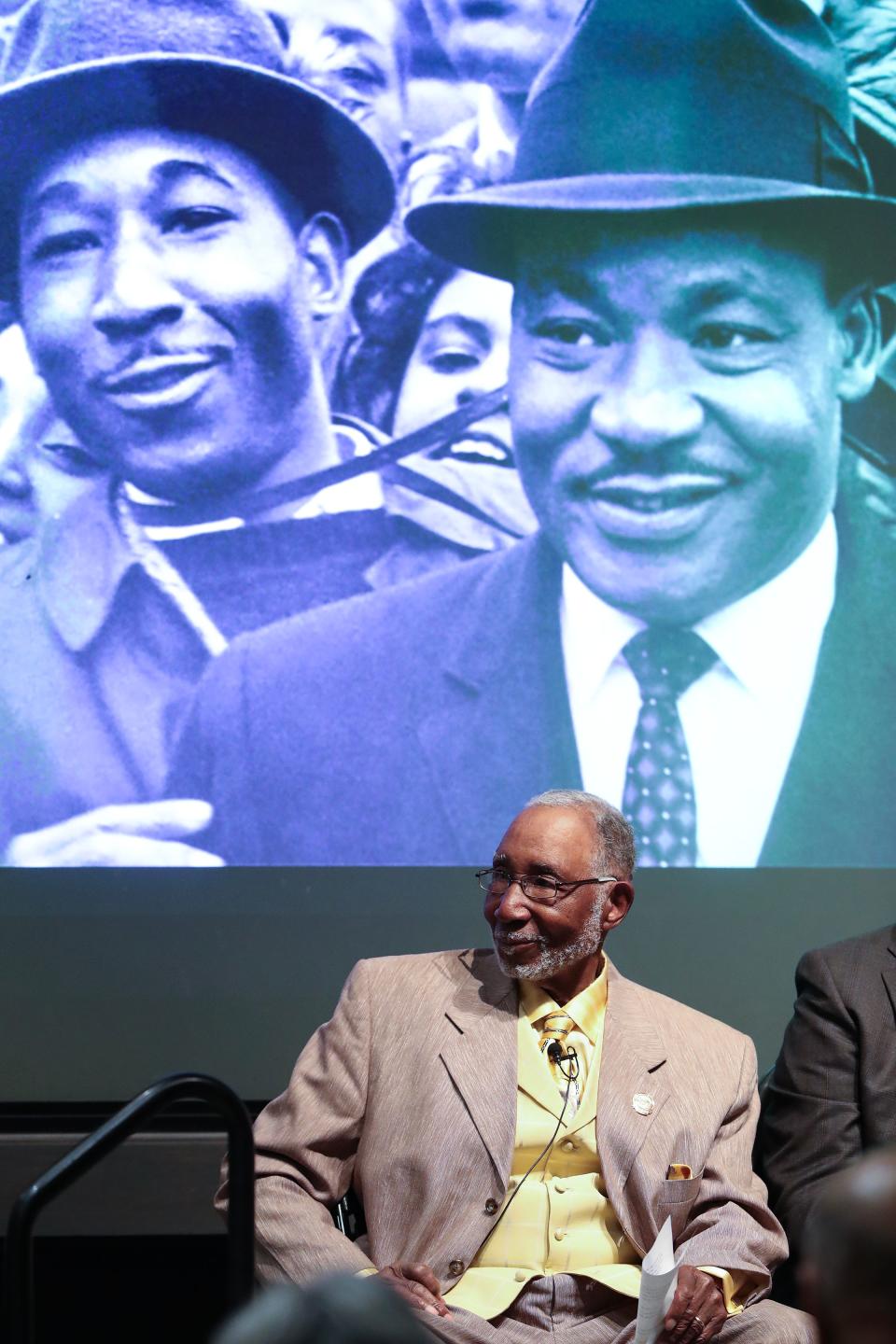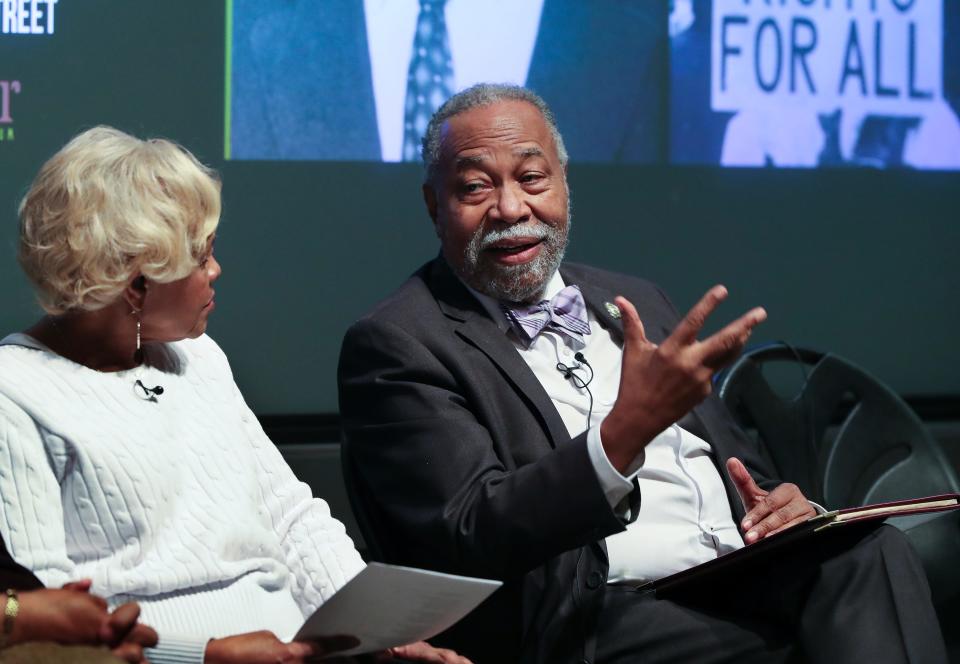'Racism is alive and well': 4 takeaways from a discussion on civil rights in Kentucky
- Oops!Something went wrong.Please try again later.
Kentucky has come a long way since 10,000 people marched to the state capitol in 1964, demanding an end to segregation at businesses statewide. But 60 years later, the struggle against racism is still alive and well.
That was the theme that emerged during a panel discussion Thursday, where several people involved in the historic March on Frankfort reflected on the event and what it means to keep fighting discrimination in 2024.
The discussion was part of the Frazier History Museum's Bridging the Divide Series, in partnership with the Courier Journal and Louisville's Office of Equity.
Below are a few highlights from the conversation − available to watch in full on the CJ's YouTube page.
March on Frankfort had a rippling effect
The March on Frankfort − led by Martin Luther King Jr. and retired baseball player Jackie Robinson − was organized as a call to action for state lawmakers who were debating two civil rights bills proposed in the house and senate.
The bills would have made it illegal for businesses and other public accommodations to discriminate against Black people. And while neither won approval in 1964, the march set the stage for the passage of the Kentucky Civil Rights Act in 1966.
The passage made Kentucky the first southern state to institute such a bill, and it also gave teeth to the state's commission on human rights, which until that point did not have legal authority to rule on complaints of discrimination, said John J. Johnson, who served as executive director of the commission for 13 years.
Today, the commission investigates discrimination complaints for all protected classes, including age, sex, religion and disability.
"All of that would have never been in place had it not been for the march in 1964," Johnson said.
No national figure has replaced Martin Luther King Jr.
In 1964, King was the drawing power for thousands of Kentuckians who wanted to hear the acclaimed activist speak. But 60 years later, no one person wields the same influence in the ongoing fight for racial justice, several panelists said.
"There is no one to compare with Martin Luther King, who could galvanize the whole civil rights movement around him," said Raoul Cunningham, president of the Louisville Branch NAACP.
Johnson said many individuals and groups continue to work to improve the lives of Black people, however. And the question now is "are we supporting them?"
"We can talk about how Martin King is not with us, but what stops me from doing what I can, doing my part?" he said.
Kentucky, U.S. are in a time of 'reaction'

Throughout history, every positive step toward reducing racial inequalities has been followed by a negative reaction, said Sen. Gerald Neal, a member of the Kentucky Black Legislative Caucus.
And following the racial justice protests of 2020, the U.S. and Kentucky are now "in a period of reaction."
"A sophisticated reaction. A targeted and intentional reaction," Neal said, referencing several proposed state bills filed by Republican lawmakers that could have harmful repercussions for Black residents.
"You'll find interaction between the same players on these bills," he said. "It's very intentional. And what's happening toward Louisville is part of that. ... Racism is alive and well."

Education is important to overcome discrimination
Chaka Cummings, executive director of the Association for Teaching Black History in Kentucky, said more discussions like Thursday's panel are needed to honor Black heritage and to show people that anyone can help make a change.
"There's a lot of Black legacy in this state, and that doesn't always get explored in classrooms the way that it should be explored," he said.
Lamont Collins, founder of the Roots 101 African American Museum, added that Black history is American history, and "it should not be taught 28 days a year."
"What would it mean for a young Black boy to hear that he's the descendent of kings and queens, that his history forged philosophy, mathematics, science," Collins said. "Would he not walk different? Would he not talk different? That's why history is so important."
Reach reporter Bailey Loosemore at bloosemore@courier-journal.com, 502-582-4646 or on Twitter @bloosemore.
This article originally appeared on Louisville Courier Journal: Kentucky civil rights leaders reflect on 1964 March on Frankfort

